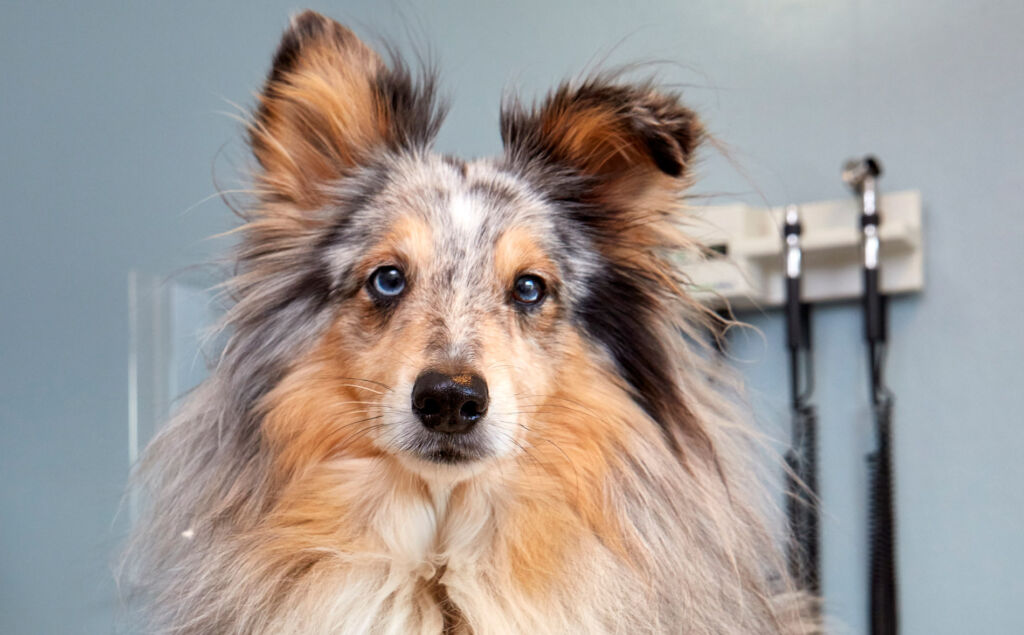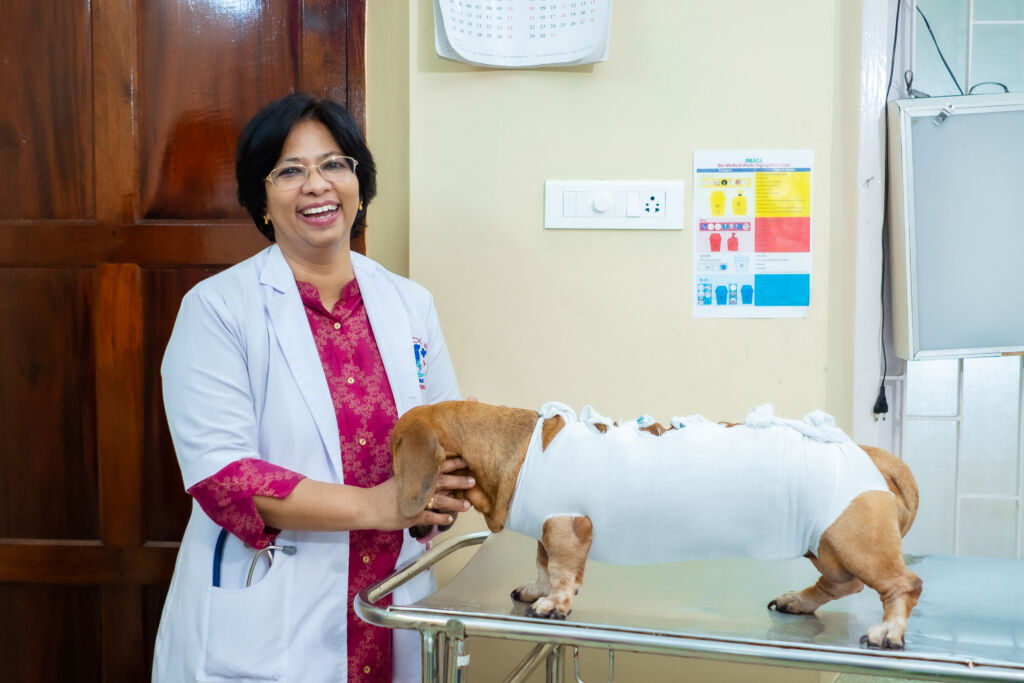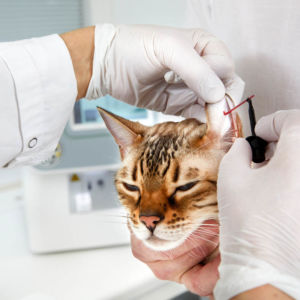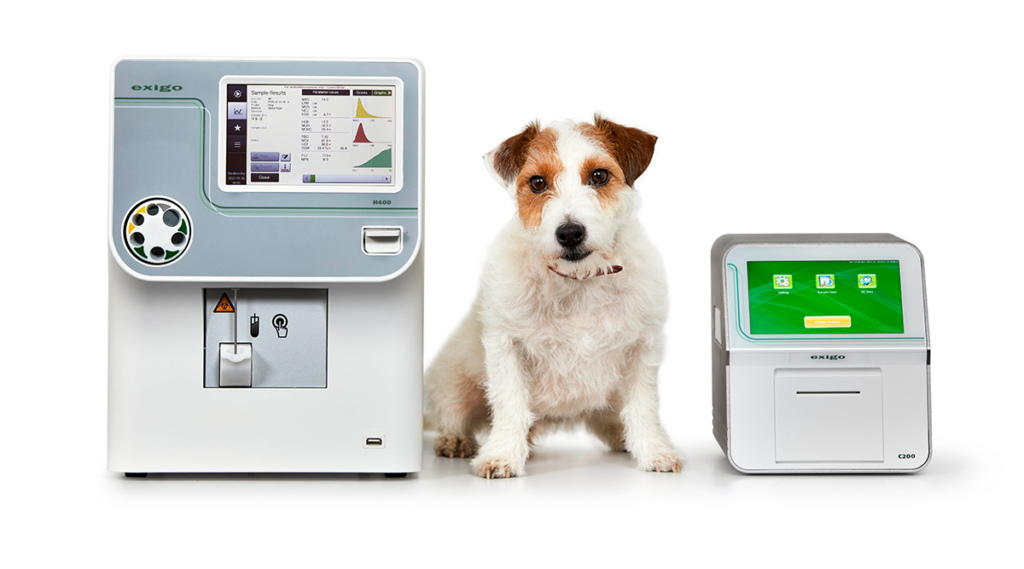In a previous article, Pre-operative assessment of animals, we outlined the recommended approach to assess patients’ suitability for anesthesia and surgery. Building on this, we talked to Dr. Annie Varghese, a very experienced and respected veterinary surgeon in India to find out how she and her team conduct pre-op assessments in their daily work. Not to mention how important these assessments are for safeguarding an animal’s health and well-being – before, during and after surgery.

Animals and their welfare are becoming more and more important to us humans. On top of a growing understanding of their rights and our own responsibilities towards animals, we’re witnessing a growth in pet ownership around the world – where cats and dogs in particular are increasingly seen as beloved family members and companions:
- Over half the world population is estimated to have a pet at home.
- Pet ownership is rising globally due to smaller families and people having children later in life or no children at all.
- In developing countries, an expanding middle class drives the growing pet population.
- Pets are “tension absorbers” with ownership leading to improved human health outcomes such as better heart health, and lower levels of depression and anxiety.
A first-hand witness to these trends is Dr. Annie Varghese MVSc (Surgery) PhD. She is the Chief Surgeon and Veterinary Consultant at Adonai Companion Animal Care in Thiruvananthapuram, the beautiful, sandy-beached state capital of Kerala on the southeast coast of India. Dr. Varghese runs a veterinary hospital specialized in treatment for dogs, cats, birds and exotic pets with fully equipped OR, dental unit and laboratory for hematology, biochemistry, hormone assays, microscopy and urinalysis. Other units include ophthalmology, imaging using X-ray and ultrasound, nephrology, cardiology and blood transfusions. Not surprisingly, this well-equipped hospital also conducts training sessions for veterinarians and paraveterinarians in the region.
The hospital’s promise to the pet owners who come through their doors is simply this: “We will take care of your beloved pet as if they were our own – with love, kindness and endless patience.” So, it’s no surprise that Dr. Varghese knows the importance of pre-op assessments in minimizing the risk to these animals. Although the owners, even when they want the very best for their pet, can sometimes need convincing.

Dr. Annie Varghese MVSc (Surgery) PhD, Chief Surgeon and Veterinary Consultant at Adonai Companion Animal Care in Thiruvananthapuram
As Dr. Varghese explains: “Suppose they bring their dog in for spaying or castration. To them, their pet looks healthy. It’s eating properly. Its voiding habits are good. It’s playing with them. Then when we say we have to do blood work, many people object: “But my pet is healthy!” However, when we do the blood work, we can find many things. For example, the subclinical form of Tick Fever is rampant, especially as there are a lot of ticks present in this area. So, we see low platelet counts in many animals and this thrombocytopenia means increased risks during surgery such as extra bleeding and anesthetic problems.”
According to Dr. Varghese, this can delay surgery for around 25% of animals, and it’s such a high percentage which are affected that the importance of screening is clear to her: “In our hospital, we always do the blood work.”
Dr. Varghese goes into detail about what her and her team are looking for during the pre-op assessment. From the physical examination that includes visual inspection from head to tail, palpation, percussion and auscultation plus patient history (anamnesis). To the primary blood check that includes the complete blood count (CBC), liver function test and renal function test. If abnormalities are detected, further tests are done like urinalysis, cultures, radiographs, coagulation studies, electrocardiogram and echocardiography.
Let’s follow her to see how the pre-op assessment guides her treatment.
Physical exam and patient history
“Initially, we will do a complete physical exam from head to tail,” says Dr.Varghese. “We do the auscultation, the palpation. We see if there’s any increased size of organs, different heartbeats or breathing patterns, any pain or swellings, changes in the size of lymph nodes … in short, any physical evidence of sickness. This gives us an idea as to how physically sound the animal is, before we go into reading the blood values, as well as identifying parameters of interest.”
The patient history is also key. As Dr. Varghese explains, “We will first take the history from the owner. We do a lot of deep questioning to see if there are any episodes of tick infestation or if the owner has found and removed ticks after a walk. Because just that short time, that single bite, can be enough to infect the animal.” This information becomes a vital clue to help decide if added tests are needed apart from the primary CBC, LFT and RFT.
Before the CBC
For Dr. Varghese and her team, it’s important to take the animal’s emotional state into account before reading the blood results: “When we are collecting blood, if they are docile and calm animals, it’s generally fine. But there are very fearful animals who get stressed out when they are just put on the table. So, if there’s a lot of fear and excitement, sometimes there can be changes in certain parameters. From the surgery point of view, such things have to be taken into account so we note all these things actually before we read the CBC. That comes with experience.”
Ready for surgery? Or postpone?
How can the results of the CBC affect the surgery? “We look at the entire report,” she says. “We look at the RBC, WBC, cell volume, hemoglobin … everything is taken very seriously, because that gives a basic idea of the condition of the animal. Surgery is a big stress to the animal and, the moment the stress is put in, whatever lies subclinically will come into the open. So, supposing it’s an elective surgery, such as spaying and castration and the animal is apparently normal, but we see there is a slight elevation in the white blood cell count, and also an increase in the neutrophils. That’s an indication of an inflammatory reaction or a possible subclinical/clinical infection. In which case, we’ll go for an antibiotic cover for at least five days, do a recheck and only then go ahead with the surgery. Similarly, with a low RBC and hemoglobin count, we’ll address the anemia first, then recheck so that we minimize the risks as there is a potential for blood loss during surgery, not to mention aiding the recovery and healing process.”
How does Dr. Varghese use the biochemistry profile? “We insist on biochemistry for sick animals,” she explains. “For example, an animal has a problem with a limb and we have to amputate it. Maybe there’s necrosis or gangrene. In which case we will go in for the complete blood work, looking at liver, kidney and cardiac functions. We go in for everything because we don’t know how much damage has been done to these organs because of the infection or because of the trauma. So, we make sure the danger zone is already crossed and only then we go in for the surgery.”
Preparing for anesthesia
Blood testing helps in the planning of surgery, and especially when selecting which anesthetic to use. “The complete blood count and, in some cases, the liver, kidney and cardiac values, are very important in the decision making for what type of general anesthetic should be used. Supposing we find the animal has a cardiac issue, we know that xylazine often has a negative effect on the heart, reducing the heart rate and increasing the chances of arrhythmia. Then we would try our best to avoid this particular drug. And there are certain cases – maybe the animal has a severe liver issue – where we won’t use a general anesthetic, but go for a deep sedation with nerve blocks to minimize the anesthetic and reduce the risk of the liver being compromised later. These are some of the ways the blood testing helps the vet to make the best decisions.”

Micro-pipette sample from the ear with Exigo H400
Post-op recovery and healing
Blood testing also helps the vet and owner prepare for the important recovery period after surgery. “If we find thrombocytopenia or platelets below 50,000 cmm, we expect the wound healing to be slower than normal. We can tell the owner to expect a longer time to heal and get them ready to cooperate with us.”
For Dr. Varghese, a comprehensive pre-op assessment is key to the successful surgical treatment and healing of the animals that come into her care. But she is aware that it demands a little extra from vets as she explains, “We study all this when we are doing our veterinary courses. But it is a matter of applying all we have learned, putting it together and then working it out. So, it takes a little bit of thought.”
It is time we’ll spent. Because, when it comes to these irreplaceable animals and the owners who are so devoted to them, a little extra thought can go a very, very long way.

Learn more about the Exigo H400 and Exigo C200 systems
Global trends reference: https://www.healthforanimals.org/reports/pet-care-report/global-trends-in-the-pet-population/






